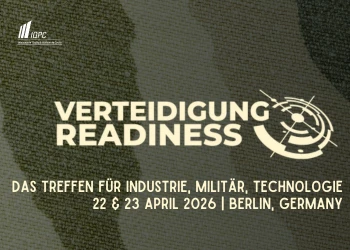John Boyd, Global Disorder and Embracing Uncertainty
Add bookmark
‘Why does our world continue to unfold in an irregular, disorderly, unpredictable manner, even though some of our best minds try to represent it as being more regular, orderly, and predictable?’
Such was the question posed by the defence community’s elected messiah, John Boyd, in his presentation on the Conceptual Spiral. However, I would argue that, today, we are under no impression that the world is regular, orderly and predictable. In fact, I challenge you to find a doctrine note, speech or defence policy paper that doesn’t start with ‘In an increasingly complex world, characterised by great uncertainty…’ Indeed, no one predicted that the world would be confronted with a deadly pandemic this year, nor have we been able to predict or control the resultant political, social and economic disorder.
Yet, recognition is not the same as embracing entropy. John Boyd wrote that ‘survival and growth are directly connected with the uncertain, ever-changing, unpredictable world of winning and losing’. He argued that we must ‘exploit this whirling (conceptual) spiral of orientation, mismatches, analyses/synthesis, reorientation, mismatches, analyses/synthesis ... so that we can comprehend, cope with, and shape—as well as be shaped by—that world and the novelty that arises out or it’.
To exploit unpredictability and uncertainty, then, we must embrace it. It must underpin and shape our approaches to problem solving and decision-making, especially in matters of national security.
This is not easy. The Defence community plans around potentialities to minimise risk and increase readiness, even though most, if not all, of the major geopolitical events in the past two decades have been complete surprises. But we do seem stuck in a continuous loop of 'remembering the future', underpinned by legacy 'scripts' that underpin our understanding of our external world, or, specifically, our understanding of conflict and global threats.
When we talk about the future, we talk about 'new Cold Wars' or start to apply Clausewitzian theory to technological advances such as AI and machine learning. We use traditional (19th century) discourses on statecraft whilst our industrial-age procurement system continues to be driven by our penchant for shiny and new military hardware. Indeed, should we assume that brute military force will be as an effective tool to achieve policy objectives in, say, 2050? The rapidity of technological change and the non-military challenges we face (global pandemics, the climate crisis, social uprisings) make me question whether it will be, and if this is the case we may need to reconsider our traditional ontology of war and associated normative processes of military planning and action.
Could AI or other transformative technologies, rather than war, become the new ordering power in a world characterised by disorder? It’d be great to see these questions explored and shared in public discourse on the future, rather than in conversations on ‘killer robots’ or new Cold Wars.

























